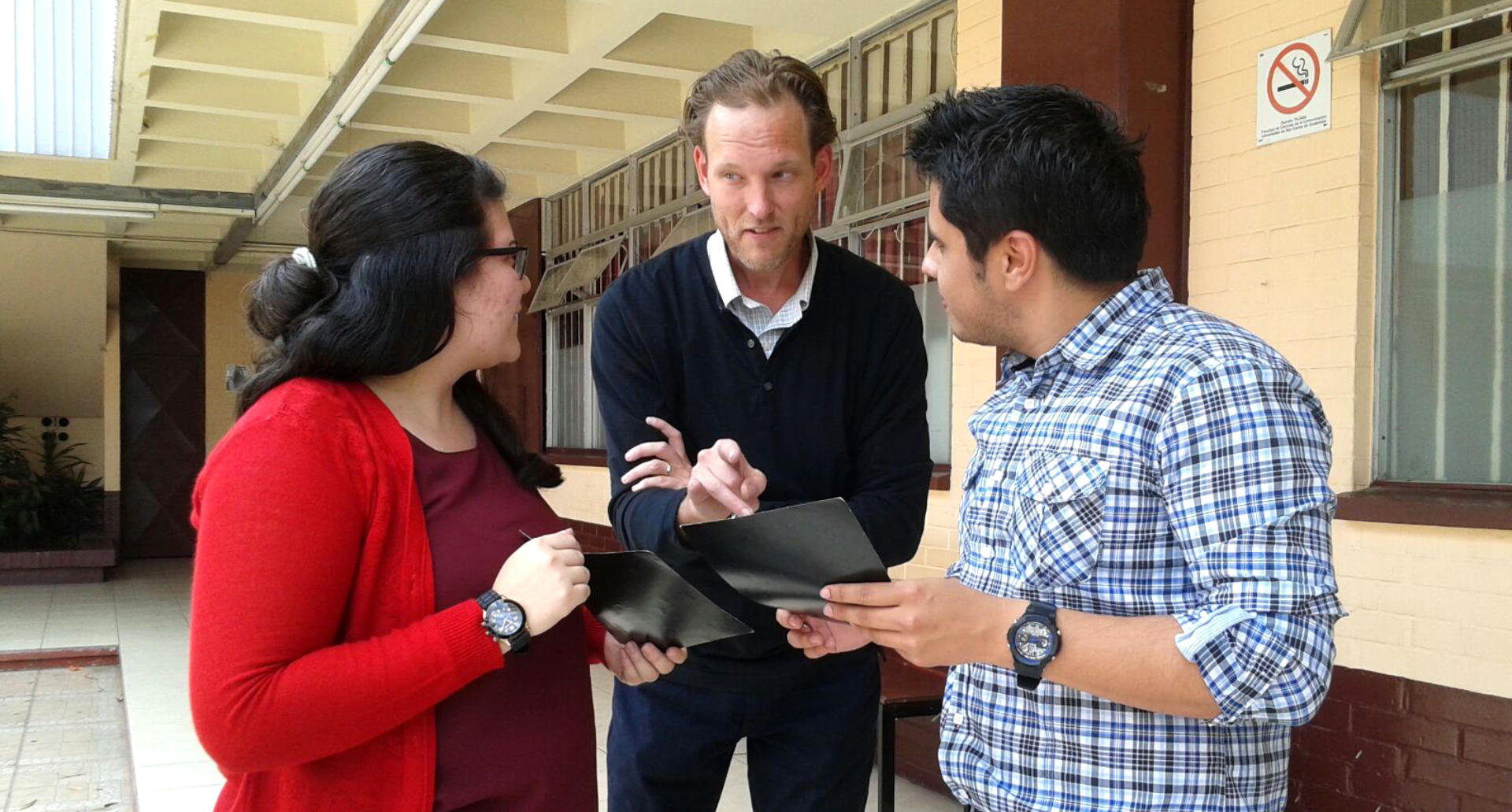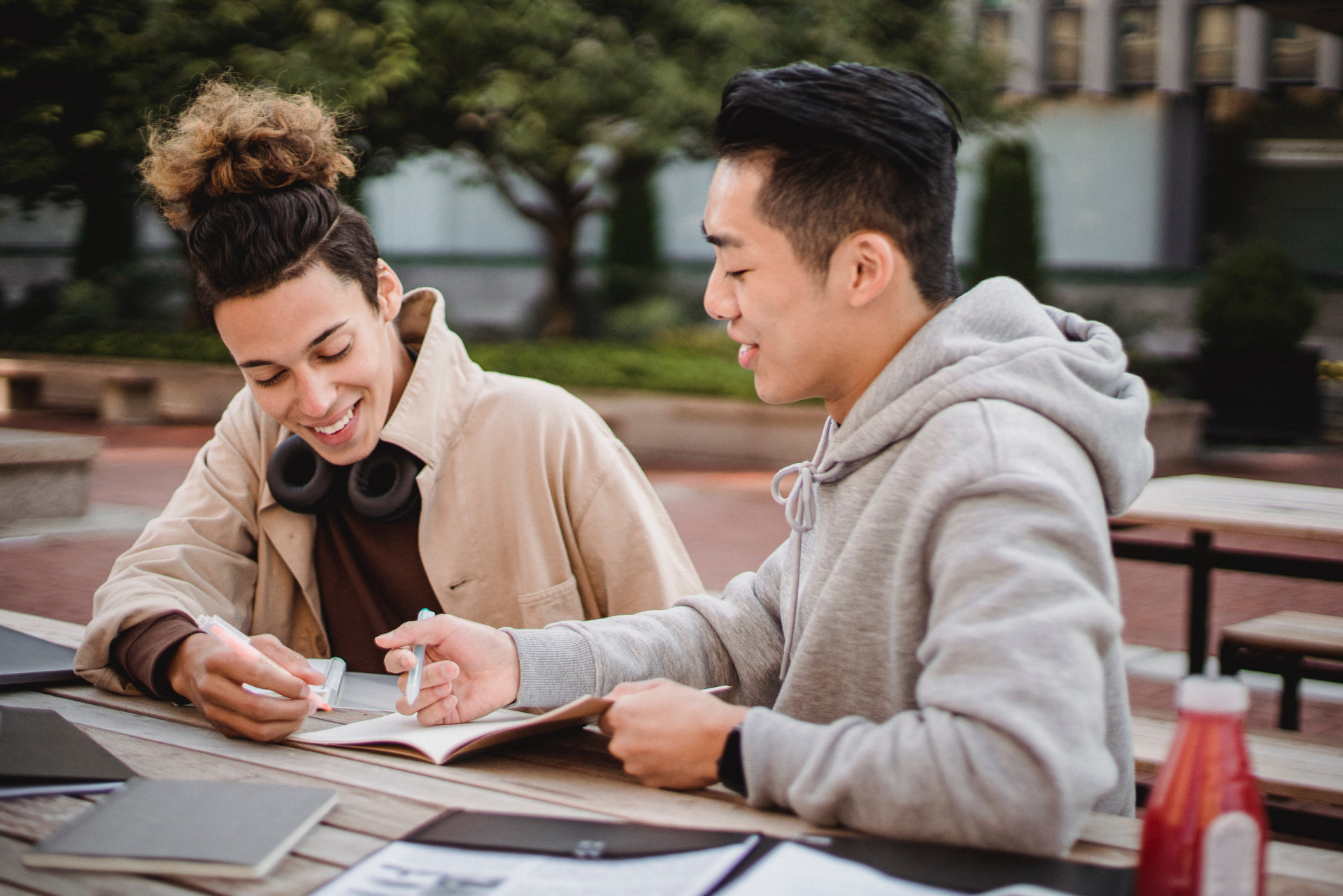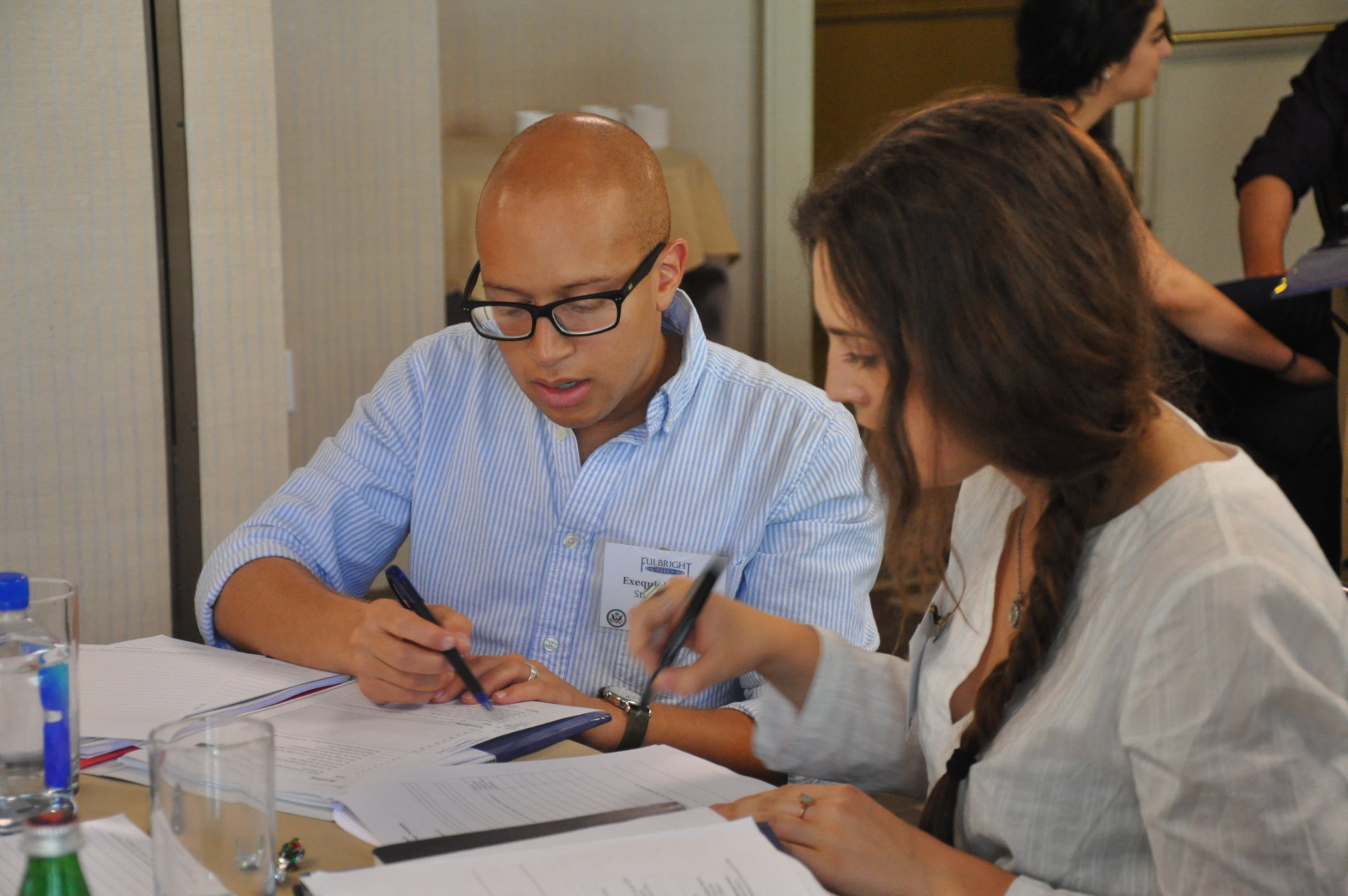
Study of the U.S. Institutes for Scholars (SUSIs) are intensive five-to-six-week post-graduate level academic programs whose purpose is to provide a foreign university faculty and other scholars the opportunity to deepen their understanding of U.S. society, culture, values, and institutions. The ultimate goal of the Institutes is to strengthen curricula and to enhance the quality of teaching about the United States in academic institutions abroad. Each Institute will include an academic residency component and up to two-weeks integrated study tour to another region of the United States.
Themes of the U.S. Institutes:
American Politics and Political Thought
The Institute on American Politics and Political Thought will provide a multinational group of 18 experienced and highly motivated foreign university faculty and practitioners insight into how intellectual and political movements have influenced American political institutions and American democracy. The Institute will explore the shaping of American identity and the chemistry between that identity and U.S. history, politics, and the democratic process. The Institute will provide a deeper understanding of major currents in U.S. political thought, from the colonial period to the present, and explore contemporary U.S. political and social debates and public policy, relating them back to U.S. political thought and American identity. The University of Montana will administer this program while the University of Massachusetts in Amherst, Massachusetts, will host this Institute.
Contemporary American Literature
The Institute on Contemporary American Literature will provide a multinational group of 18 experienced and highly motivated foreign university faculty and practitioners with a deeper understanding of U.S. society and culture, past and present, through an examination of contemporary American literature. The Institute will examine how major contemporary writers, schools, and movements reflect the U.S. literary canon. The Institute will also explore the diverse communities and voices that constitute the American literary landscape and expose participants to writers who are establishing new directions for American literature. The Institute will cover a variety of contemporary American writers and writing and suggest how the themes explored reflect larger currents within contemporary U.S. society and culture. The University of Montana in Missoula, Montana, will administer and host this Institute.
Journalism and Media
The Institute on Journalism and Media will provide a multinational group of 18 experienced and highly motivated foreign journalism instructors and other related specialists with a deeper understanding of the roles that journalism and the media play in U.S. society. The Institute will examine the role of journalists in recognizing and preventing disinformation and will explore strategies for media and information literacy to counter disinformation. Additionally, the Institute will examine best practices in journalism by discussing the rights and responsibilities of the media in a democratic society, including editorial independence, journalistic ethics, legal constraints, and international journalism. The program will also highlight the impact of technology in journalism, including the influence of the digital economy, globalization of the news media, shifting business and funding models, and other changes that are transforming the profession. The University of Montana will administer this program while Arizona State University in Tempe, Arizona, will host the Institute.
U.S. Culture, Identity, and Society
The Institute on U.S. Culture, Identity, and Society will provide a multinational group of 18 experienced and highly motivated foreign university faculty and other specialists with a deeper understanding of U.S. society, culture, values, and institutions through the lens of diversity and national unity. The Institute will examine the ethnic, racial, social, economic, political, and religious contexts in which various cultures have manifested in U.S. society while focusing on the ways in which these cultures have influenced social movements and American identity throughout U.S. history. The program will draw from a diverse disciplinary base and will itself provide a model of how a foreign university might approach the study of American culture and society. The University of Montana will administer this program while Seattle University in Seattle, Washington, will host the Institute.
U.S. Economics and Sustainable Development
The Institute on U.S. Economics and Sustainable Development will provide a multinational group of 18 experienced foreign university faculty, researchers, practitioners, and policymakers with a deeper understanding of key components and structures of the U.S. economy. Using a multidisciplinary approach, the program will explore various topics of socioeconomics; how financial institutions, investors, and businesses interact to support sustainable economic development, innovation, and growth; and increasing diverse and equitable employment through institutional regulation, social inclusion strategies, and private and public policies. Throughout the Institute, participants will examine the interplay of climate change, U.S. business innovation, corporate regulation, entrepreneurship, and economic theory. Participants will have opportunities to learn about key institutions and stakeholders in the U.S. economy and meet with a diverse range of business leaders and small business owners, among others. The University of Montana will administer this program while the Institute for Training and Development (ITD), in conjunction with Suffolk University, will jointly host the Institute in Amherst and Boston, Massachusetts.
U.S. Foreign Policy
The Institute on U.S. Foreign Policy will provide a multinational group of 18 experienced foreign university faculty and practitioners with a deeper understanding of new approaches to U.S. foreign policy and how U.S. foreign policy is formulated and implemented. The Institute will include a historical review of significant events, individuals, and philosophies that have shaped U.S. foreign policy. The Institute will explain the role of key players in U.S. foreign policy including the executive and legislative branches of government, the media, the U.S. public, think tanks, non-governmental organizations, and multilateral institutions. The program will also examine current U.S. foreign policymaking and new trends that are shaping policy. The University of Montana will administer this program while the University of Delaware will host the Institute in Newark, Delaware.



Download the application form. Please fill out the application and send your application to the following email address: office@fulbright.sk and contact_bratislava@state.gov.
Deadline for submission of applications for summer 2025 will be announced in Fall 2024. Incomplete applications and applications received after that deadline will not be considered.
Application cycle is open.
Deadline for submission of the application. Applications are reviewed for eligibility criteria. The most qualified applicants are invited for an interview.
Successful applicants are notified of their nomination. The final stage of the selection process is made by the U.S. Department of State in Washington, D.C.
Successful applicants chosen by the U.S. Department of State are notified.
Administrative steps to process visa applications and departure for the U.S. are taken.
What degree of English proficiency should I have?
You must be fully proficient in English to fully understand lectures, actively participate in discussions, and read and write assignments in English.
I have been to the United States before. Does that mean I cannot apply for this program?
You can apply for SUSIs for Scholars. However, please bear in mind that candidates with little or no experience in the United States may be considered for the program.
How much free time/time for independent research will I have during the program?
There will be some free time during the program as well as some time designated for independent research. However, candidates must understand that this is an intensive academic program and they are expected to participate in all lectures, activities, and scheduled events. Participants in Scholar Institutes may, at their own expense, opt to extend their stay in the United States after the close of their program to the extent allowed by visa regulations.
I am not a college professor; can I be considered for the program?
Yes, you can. Candidates from a variety of professional backgrounds who are professors at all stages of their careers, college and university administrators, practitioners in a designated field, and community leaders will be considered.
If I have relatives in the United States, would I have time to see them?
Because of the intensive nature of the Institutes, participants will not be able to leave the Institute to visit relatives or friends. Participants in Scholar Institutes may, at their own expense, opt to extend their stay in the United States after the close of their program to the extent allowed by visa regulations.
Can a relative travel and stay with me during the Institute?
No. Relatives are not permitted to travel or stay with a participant during the program. There are no exceptions to this rule.
Can I arrive early/late for the Institute?
The U.S. host university is expected to arrange flight itineraries so that participants arrive on the Institute start date. Occasionally, flight schedules necessitate a participant to arrive a day early. Once participants have reviewed their flight itinerary and the U.S. host university has booked the itinerary, the participant is responsible for making and paying for any itinerary changes, the participant chooses to change their plans.
Can I stay in the U.S. after the end of the Institute?
Yes. Under the terms of their J-1 visas, participants generally have up to 30 days after the end of the program to depart from the U.S. However, participants must be aware that they are responsible for all arrangements and expenses after the end of the Institute and will no longer have ECA-sponsored health benefits.
Can I miss one part or component of the Institute?
No, you cannot. All participants are expected to participate in all scheduled lectures, events, site visits, trips, and activities.
Will applicants with disabilities be considered?
Individuals with disabilities, participants from non-elite backgrounds, historically underserved groups, disadvantaged groups, members of the LGBTI community, and ethnic minority communities are encouraged to apply. Care will be taken to ensure that any special requirements regarding diet, daily worship, housing, and medical care are met.
Where are participants accommodated when in the U.S.?
Housing will be in shared university dorms on campus with common bathrooms. Male participants will be housed on one floor and female participants on a separate floor. Most meals will be provided at campus facilities, though participants may have access to a kitchen to cook some meals on their own.